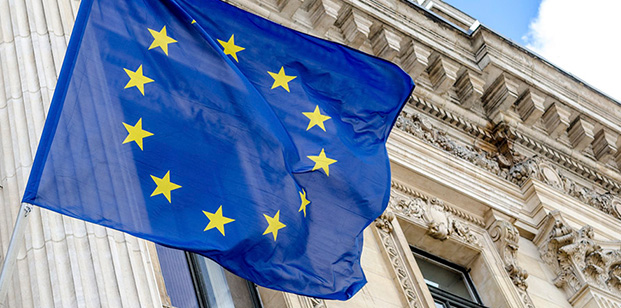As the US imposed controversial tariffs on Chinese imports – and China responded in kind – President Donald Trump met with European Commission President Jean-Claude Juncker. The two parties agreed to suspend the introduction of new tariffs while discussions remain ongoing and to work towards eliminate levies on non-auto industrial products.
- The EU and Japan signed a free-trade deal
- The IMF cut its economic growth forecast for the eurozone
- The ECB remained broadly positive towards the eurozone’s growth prospects
To view the series of market updates through July, click here
As the US imposed controversial tariffs on Chinese imports – and China responded in kind – President Donald Trump met with European Commission President Jean-Claude Juncker. Last month, the US announced plans to impose harsh levies on car imports from the EU; nevertheless, following their July meeting, the two parties agreed to suspend the introduction of new tariffs while discussions remain ongoing and to work towards eliminate levies on non-auto industrial products. The EU also agreed to increase its purchase of US liquefied natural gas and soybeans.
“There will be “no winners from Brexit”, according to the IMF”
Meanwhile, in contrast with the rising levels of protectionism emanating from the US, the EU and Japan signed a free-trade deal that will encompass one-third of the world’s GDP and over 600 million people. The EU already exports over €58 billion-worth of goods and €28 billion-worth of services every year, and the deal is expected to increase this by as much as 24%. Following the agreement, Jean-Claude Juncker said: “We are making … a statement about the future of free and fair trade … we are stronger and better off when we work together”.
The European Central Bank (ECB) maintained its monetary policy stance as expected in July and ECB President Mario Draghi retained his positive tone towards the eurozone’s economic outlook despite global trade tensions. The Dax Index climbed by 4.1% over July as a whole, while the CAC 40 Index rose by 3.5%.
There will be “no winners from Brexit”, according to a study undertaken by the International Monetary Fund” (IMF), which found that higher barriers to trade, capital and the movement of labour will harm output and jobs throughout the EU. The impact of a “no-deal” scenario is likely to be even more damaging to Europe’s long-term annual GDP growth, with countries such as Ireland, Belgium, Luxembourg, Malta and the Netherlands particularly hard hit.
The IMF cut its growth forecast for the eurozone’s economy from 2.4% to 2.2% in 2018 and from 2% to 1.9% in 2019. Growth is likely to be dampened by weaker-than-anticipated activity in Germany and France, and by political uncertainties and deteriorating financial conditions in Italy. Elsewhere, having posted growth of 5.9% in 2017, activity in emerging and developing European economies is expected to moderate to 4.3% this year and to 3.6% next year as large external deficits take their toll on some economies, including Turkey.
A version of this and other market briefings are available to use in our newsletter builder feature. Click here









